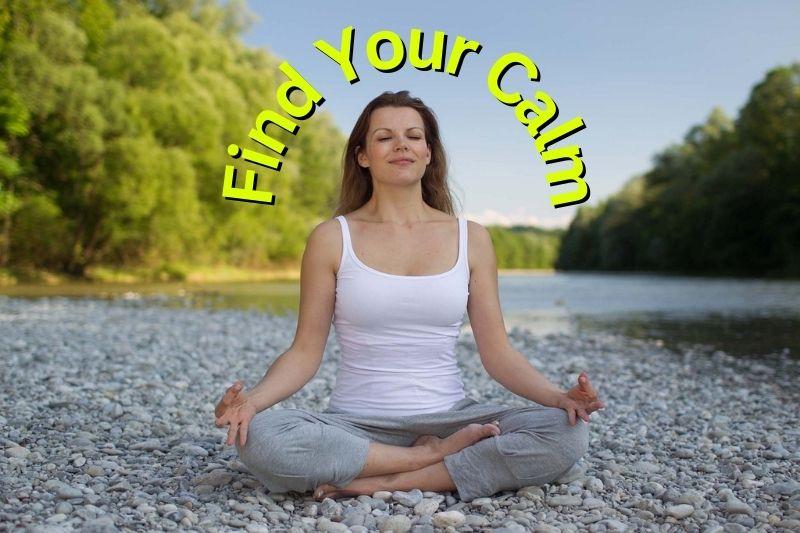How to Use Meditation to Reduce Stress and Enhance Well-being
 Meditation is a practice that has been utilized for thousands of years in various cultures and traditions as a means of fostering mental, physical, and spiritual wellness. In our fast-paced and ever-changing world, stress and tension are increasingly becoming ubiquitous, leading many to seek refuge in mindfulness and meditation.
Meditation is a practice that has been utilized for thousands of years in various cultures and traditions as a means of fostering mental, physical, and spiritual wellness. In our fast-paced and ever-changing world, stress and tension are increasingly becoming ubiquitous, leading many to seek refuge in mindfulness and meditation.
At its core, meditation is a simple concept – it involves training your mind to focus and quieten, so you can cultivate inner peace, relaxation, and clarity. The benefits of meditation are numerous and well-documented, and include reduced stress and anxiety, improved sleep quality, enhanced concentration and memory, increased feelings of calm and well-being, and reduced feelings of physical tension and pain.
Regardless of the form of meditation you choose, it's important to find a quiet and comfortable space where you can be undisturbed. It's also a good idea to establish a regular meditation practice, so it becomes a habit. Share on XSo, how does meditation work to relieve stress and tension? When we are feeling overwhelmed or stressed, our bodies go into “fight or flight” mode, releasing hormones such as cortisol and adrenaline that trigger a physiological response designed to prepare us for danger. However, in today’s world, the threats we face are often not physical but emotional or psychological, leading our bodies to be in a constant state of arousal and tension.
 Meditation helps to counteract this stress response by teaching us to focus on the present moment, letting go of thoughts and worries, and bringing our awareness to our breath and our body. This not only helps to calm the mind but also signals to the body that it is safe to relax, which in turn triggers a relaxation response. This reduction in physical tension then contributes to an overall feeling of calm and well-being.
Meditation helps to counteract this stress response by teaching us to focus on the present moment, letting go of thoughts and worries, and bringing our awareness to our breath and our body. This not only helps to calm the mind but also signals to the body that it is safe to relax, which in turn triggers a relaxation response. This reduction in physical tension then contributes to an overall feeling of calm and well-being.
Another key aspect of meditation is that it helps to improve focus and center the mind. The act of focusing on the present moment, and training our minds to let go of distractions and thoughts, helps to cultivate mental clarity and focus. This can be particularly useful for those who struggle with distractions or find it difficult to concentrate for extended periods of time.
Meditation also provides an opportunity for introspection and self-reflection. By taking time to be still and quiet, and by turning our attention inward, we can gain a deeper understanding of our thoughts, feelings, and emotions. This can lead to increased self-awareness, improved decision-making, and the development of a more positive and resilient mindset.
Meditation is a practice that has been utilized for thousands of years in various cultures and traditions as a means of fostering mental, physical, and spiritual wellness. Share on XSo, how do you start incorporating meditation into your life? There are many different forms of meditation, and the best approach will depend on your individual needs and preferences. Some popular forms of meditation include mindfulness meditation, guided meditations, and loving-kindness meditation.
 Mindfulness meditation involves focusing on the present moment and observing your thoughts, feelings, and sensations without judgment. This can be done through various techniques such as body scanning, breath awareness, and open monitoring.
Mindfulness meditation involves focusing on the present moment and observing your thoughts, feelings, and sensations without judgment. This can be done through various techniques such as body scanning, breath awareness, and open monitoring.
Guided meditations involve listening to a recorded voice that takes you through a meditative journey, and can be useful for those who are new to meditation or find it difficult to quiet their minds.
Loving-kindness meditation involves sending feelings of love, compassion, and kindness towards yourself, others, and the world. This type of meditation can help to cultivate positive emotions, foster compassion and empathy, and reduce feelings of stress and anxiety.
Regardless of the form of meditation you choose, it’s important to find a quiet and comfortable space where you can be undisturbed. It’s also a good idea to establish a regular meditation practice, so it becomes a habit and part of your daily routine. Even just a few minutes of meditation each day can help to reduce stress and tension, improve focus and concentration, and cultivate a sense of calm and well-being.
Meditation is a simple concept - it involves training your mind to focus and quieten, so you can cultivate inner peace, relaxation, and clarity. The benefits of meditation are numerous and well-documented, and includes reducing stress Share on X In conclusion, meditation is a powerful tool for relieving stress and tension, relaxing the body, finding focus, and centering the mind. Whether you’re new to meditation or have been practicing for years, incorporating this ancient technique into your daily routine can have a significant impact on your overall health and well-being. From reducing feelings of stress and anxiety, to improving sleep quality, enhancing focus and concentration, and fostering a sense of calm and inner peace, the benefits of meditation are numerous and far-reaching.
In conclusion, meditation is a powerful tool for relieving stress and tension, relaxing the body, finding focus, and centering the mind. Whether you’re new to meditation or have been practicing for years, incorporating this ancient technique into your daily routine can have a significant impact on your overall health and well-being. From reducing feelings of stress and anxiety, to improving sleep quality, enhancing focus and concentration, and fostering a sense of calm and inner peace, the benefits of meditation are numerous and far-reaching.
So, why not take some time today to find your own quiet space and explore the power of meditation for yourself? Whether it’s through mindfulness meditation, guided meditations, or loving-kindness meditation, you can learn how to use this powerful tool to relieve stress and tension, relax your body, find focus, and center your mind. With regular practice, you can transform your life and unlock the full potential of your mind and body.



